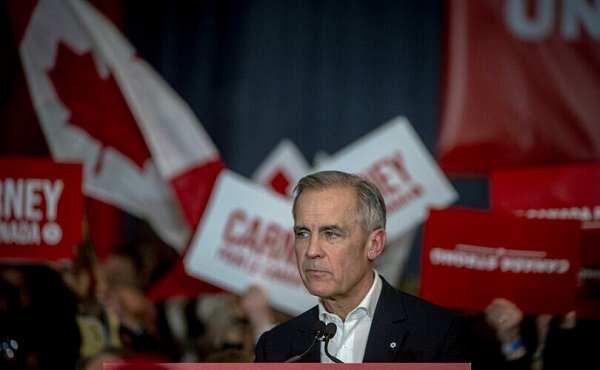Also Interesting
Why Flying Private From Calgary Is Better Than Commercial

This is a guide to flying privately from Calgary, offering everything from cost-saving tips to the perks that you can expect.
Flying privately has always been considered a privilege of the ultra-rich. Until now. While it’s not cheap, it’s much more affordable than it has been before, thanks to a wide range of options arriving on the market and soaring airfares in the commercial sector.
With a host of private jet services on offer at YYC Calgary International Airport, flying in style and comfort has never been more accessible — now, there are fixed-based operators, empty-leg flights, and a host of charter services you can choose from. Whether you’re hopping over to Vancouver for the weekend or flying halfway around the world, there’s a private service for you at YYC Calgary International Airport.
Let’s get into all the reasons why flying private from Calgary is better than commercial travel.

Calgary International Airport Can Get Too Busy
We’re talking about Canada’s fourth-largest airport here, which processed some 18.5 million passengers in 2023 alone. If you’re travelling during the holiday season, then you can expect long queues at the check-in desk, more queues at the security checks, and longer waiting times at the gate. This can be pretty frustrating and stressful, especially if you’re travelling with children or in large groups.
Flying in an aircraft charter from Calgary removes all of these concerns. Arrive at the airport within thirty minutes of departure, be whisked off to the private lounge at your chosen fixed-base operator, enjoy your seamless private check-in, and board your jet. It takes all the stress out of flying while elevating the most luxurious and exciting components.
As soon as your vacation or business trip is over, all you want to do is get home and relax. Flying privately all but guarantees that you arrive on time and enjoy a hassle-free experience as soon as you land. Say goodbye to tiring customs checks or the risk of lost baggage and long delays for connecting flights.
Flying Privately Is Easier (and Cheaper) Than You Think

Flying privately has always been seen as the ultimate flex for the ultra-wealthy — and let’s be honest, private jet ownership still is. But swapping narrow seats and crying kids for serenity at 45,000 ft is more accessible than it used to be. Thanks to some clever cost-saving innovations and rising commercial airfares, private jet travel is starting to look like a surprisingly affordable option for more people.
If you bought your own jet, you’re talking about a minimum purchase price of a few million plus nearly half a million in annual running costs. This puts ownership out of reach for most people, but there are other options. With empty-leg flights (where jets are repositioning and would otherwise fly empty), you can snag luxury flights for prices that won’t break the bank. Think hundreds instead of thousands — assuming you’re a little flexible with your schedule.
For frequent fliers, membership programs or fractional jet ownership are absolute game changers. For a flat fee, you can access planes when you need them, minus the hassle of maintenance or storage costs.
And let’s not forget charter services. Whether it’s a quick hop to a neighbouring city or a transcontinental trip, renting a jet can be cost-effective if you’re travelling with a group — remember, you’re paying for the plane, not the seat. A light jet might set you back $1,300 per hour, but divide that by a group of four travellers for a 6-hour flight, and you’re suddenly rethinking that commercial first-class ticket.
Luxury That Fits Your Schedule
YYC Calgary International Airport has 71 gates and averages almost 200 departures every day. With so much activity, cancellations and long delays are not uncommon. These can occur due to anything from maintenance issues to crew shortages. This year alone, WestJet, which operates out of Calgary, has been plagued with strikes and supply chain issues. Air Canada and WestJet also performed poorly in a list of North American airlines ranked by on-time departures.
Why risk the doom and gloom of commercial air travel at YCC Calgary when you can just fly privately? Fly on your own schedule, guarantee swift take-offs, and arrive at your destination on time. This is even more pertinent for business travellers who can’t risk being late when important meetings and deadlines are at stake. It doesn’t just have to be for work — there are times that require quick actions and getting to places faster to be with family and friends for crucial moments, and flying privately can save you from both the bureaucracy and the wait times.
Fly Private, Fly Better

Flying private from Calgary is less about getting from A to B and more about air travel on your terms. Everything that you’ve ever hated about flying can disappear with the click of your fingers and a call to your jet broker. No matter the occasion — business trips, weekend getaways, intergenerational family vacations — private travel prioritizes the journey’s aesthetics and practicality as much as the destination.
Once you’ve skipped the lines, breezed through customs, and sipped a coffee in your own space at 30,000 feet, you’ll never look at commercial travel the same way again. Go on, make the switch with confidence.
Also Interesting
Alberta Plans To Open iGaming Market After Ontario’s Success

With plans to regulate its iGaming market, Alberta aims to deliver safer gaming experiences, greater variety for players, and stronger consumer protections.
Alberta is preparing to launch a regulated iGaming market, following Ontario’s successful model. By opening the industry to private operators, the province aims to increase competition, enhance consumer protections, and generate significant revenue. If implemented, this move could position Alberta as a key player in Canada’s evolving online gaming landscape.
The Alberta government has announced plans to open its iGaming market, following in the footsteps of Ontario’s regulated model. The move is expected to create a competitive online gaming environment by allowing private operators to enter the market, rather than keeping online gambling under the sole control of Alberta Gaming, Liquor and Cannabis (AGLC). This shift aligns with the province’s broader strategy to modernize its gaming industry, offering more choices for players while generating additional revenue for public services.
Key stakeholders in this expansion include AGLC, which will oversee regulatory compliance and licensing, and private gaming operators looking to secure a presence in the province. While specific details about licensing requirements and revenue-sharing structures are still being finalized, industry experts anticipate a framework similar to Ontario’s, where operators must meet strict guidelines to ensure consumer protection. Although no official launch date has been set, Alberta officials have indicated that the market could open within 2025, pending regulatory approvals and final policy decisions.
Learning from Ontario’s iGaming Model
Ontario’s transition to a regulated iGaming market in 2022 has been widely regarded as a success, providing a model for other provinces like Alberta to follow. By allowing private operators to enter the market under the oversight of iGaming Ontario (iGO), the province created a competitive and transparent industry that offers players a safer and more diverse gaming experience. The shift also helped curb unregulated offshore gambling by giving players legal, well-regulated alternatives.
Since its launch, the market has seen impressive growth. In its first year, the province generated over $1.4 billion in gaming revenue, making it one of the largest regulated online gaming markets in North America. The competitive landscape has attracted dozens of operators, contributing to job creation and economic development while ensuring a steady stream of tax revenue.
Apart from financial success, regulation has strengthened consumer protection through responsible gaming measures, operator accountability, and stringent licensing requirements. This model has boosted government revenue and set a precedent for how other Canadian provinces, including Alberta, can structure their own regulated iGaming markets.

Potential Challenges and Considerations
While Alberta’s plan to open its iGaming market presents significant opportunities, it also comes with challenges that must be carefully managed. One key hurdle is the regulatory framework, as the province must establish clear licensing requirements, tax structures, and operational guidelines to ensure a smooth transition. Policymakers will need to balance industry growth with responsible gaming practices, learning from Ontario’s experience to avoid potential pitfalls.
Responsible gaming will be another major focus, as increased accessibility to online gambling can raise concerns about addiction and player protection. AGLC will need to implement strict measures, including self-exclusion programs, deposit limits, and public awareness campaigns to promote safe gaming habits. Ensuring that operators comply with these measures will be critical to maintaining consumer trust.
Industry and Player Expectations
This move has sparked interest among gaming operators and industry experts. Many see this as a natural progression following Ontario’s success, with expectations that the province will attract major operators eager to expand into a newly regulated space. However, industry leaders will be watching closely to see how Alberta structures its licensing process and tax rates, which will play a key role in determining the market’s competitiveness.
While Alberta is following Ontario’s lead, its approach may differ in key areas. Ontario operates through iGaming Ontario, a regulatory body that oversees private operators, while Alberta may take a more direct role through AGLC. Additionally, given Alberta’s smaller population compared to Ontario, the province may focus on a more controlled rollout rather than opening the market all at once.
For players, the expansion could mean access to a wider range of online casinos, better game variety, including a larger selection of online slots and table games, and more competitive promotions. With private operators entering the scene, expect an increase in sign-up offers, loyalty programs, and exclusive bonuses designed to attract new customers. If executed effectively, Alberta’s iGaming market could create a more dynamic and player-friendly experience while maintaining strong consumer protections.

What Alberta’s iGaming Future Could Look Like
Alberta’s plan to open its iGaming market marks a significant shift toward a more competitive and regulated online gaming industry. By following Ontario’s successful model, the province aims to create a safer and more dynamic gaming environment while driving economic growth. With private operators expected to enter the market under AGLC’s oversight, players will likely benefit from greater choice and enhanced consumer protections.
If Alberta successfully implements this framework, it could set the stage for other provinces to follow, further shaping Canada’s evolving iGaming landscape. A well-regulated market not only boosts provincial revenue but also strengthens responsible gaming initiatives and keeps players within legal platforms. As the industry awaits further details, Alberta’s next steps will be crucial in determining whether it will become Canada’s next major online gaming hub.
Also Interesting
The Economic Impact of Online Poker on Canada’s Gambling Industry

Canada’s online gambling market pulled in $2.64 billion in 2021, with nearly half of that coming from online formats. That figure grew to $3.1 billion by the end of 2023, reflecting the industry’s steady expansion. Meanwhile, offshore sites rake in over $4 billion annually from Canadian players, highlighting the significant outflow of gambling revenue to unregulated platforms.
In Ontario alone, online poker generated $11.7 million in revenue in the first quarter of 2024. Across the country, wagers on online poker exceed $100 million annually, a small slice of Canada’s total gambling market, which surpasses $12.5 billion each year.
Ontario’s regulated system has successfully retained over 85% of its players on locally licensed platforms, setting a precedent for other provinces. As a result, many regions are now considering similar regulatory approaches to keep tax revenues within Canada while ensuring a safer gambling environment for players.
The Role of Tournaments in Driving Revenue
Large-scale poker tournaments have played a pivotal role in shaping Canada’s gambling economy, generating millions in prize pools and boosting tourism. The World Series of Poker (WSOP) Circuit event in Toronto drew over 5,000 entries and awarded more than $5.5 million in 2024, further cementing poker’s economic influence. Similarly, the annual World Poker Tour (WPT) in Montreal attracts both local and international players, significantly benefiting casinos and the hospitality industry.
Online poker in Canada continues to grow steadily amid these live tournaments. Online platforms host major events with guaranteed prize pools that attract thousands of players. This dual presence of live and online tournaments reinforces poker’s financial impact on Canada’s gambling sector.
Employment and Industry Development
The expansion of online gambling has led to the creation of approximately 7,000 new jobs in 2023. From game developers and cybersecurity experts to customer support teams and marketing professionals, the industry has fostered employment growth across various sectors.
Additionally, investment in Canadian gaming studios such as Old Skool Studios, Zartek, and Pear Fiction has surged. These companies play a crucial role in developing innovative gaming content, ensuring a steady influx of new titles that keep players engaged while keeping revenue within Canada’s economy.
Beyond direct employment, gambling revenues support social programs. British Columbia, for instance, allocates $140 million annually from gambling revenues to fund community projects. Other provinces have implemented similar initiatives, demonstrating the broad societal benefits
of the industry beyond casino profits. Other provinces have varied approaches for distributing these funds.
Legal Framework and Consumer Trends
Ontario remains a leader in online poker regulation, with iGaming Ontario overseeing operations and maintaining strict compliance measures. The province saw $14 billion in wagers from 920,000 registered players in early 2023, growing to $17.2 billion by the year’s end, generating $658 million in revenue.
Nationwide, about 30% of adults are registered on at least one online betting site, with a demographic skew toward players aged 30 to 50 years old. Men account for 56% of users, reflecting a gender-based trend in online poker engagement.
With the growing acceptance of online gambling, provincial governments are increasingly considering regulatory frameworks to provide safer, locally governed alternatives to offshore platforms. Esports betting is also gaining traction, with expectations that it will become a significant market segment by 2025.
Mobile and High-Tech Gaming Expansion
The shift towards mobile gaming has redefined player behavior. More gamblers now prefer smartphones over desktops, prompting online casinos and poker sites to optimize their mobile platforms for seamless accessibility.
Artificial intelligence has been incorporated into several aspects of online gambling, such as personalized game recommendations and automated customer support. Additionally, blockchain technology has improved transactional security and payout speeds, ensuring greater transparency for players.
Looking ahead, virtual reality (VR) and augmented reality (AR) are expected to play a more prominent role in online gambling, creating immersive experiences that simulate real-world casino environments. These advancements will likely drive further engagement and attract a younger demographic of tech-savvy players.
The Economic Challenges and Future Prospects
Despite its growth, Canada’s online poker industry faces key challenges, particularly regarding offshore gambling competition and regulatory discrepancies across provinces. Offshore operators continue to attract Canadian players, diverting potential tax revenue away from local
governments. Addressing this issue through a nationwide regulatory approach could help Canada maximize the economic benefits of online poker.
Additionally, the gambling industry’s relationship with responsible gaming initiatives will be crucial in ensuring sustainable growth. With the rise in problem gambling awareness, implementing more robust player protection measures and responsible gaming campaigns will be essential.
The future of online poker in Canada looks promising. As more provinces explore regulatory frameworks, the industry is poised for further expansion, bringing new jobs, increased tax revenues, and enhanced consumer protections. Continued technological innovation and tournament expansion will further solidify Canada’s position as a significant player in the global online poker market.
Conclusion
Online poker plays an integral role in Canada’s gambling industry, contributing millions in revenue, job creation, and technological advancements. With Ontario leading the way in regulation, other provinces are likely to follow suit, fostering a safer and more profitable gaming environment.
However, addressing offshore gambling competition and strengthening responsible gaming measures will be crucial in maintaining industry stability. As mobile gaming, AI, and blockchain continue to evolve, the online poker market will remain a key economic driver in Canada’s gambling sector for years to come.
By fostering regulatory expansion, technological innovation, and responsible gaming practices, Canada can ensure the continued success of its online poker industry, keeping revenue within national borders while offering a secure and engaging experience for players.
-

 John Stossel2 days ago
John Stossel2 days agoGovernment Gambling Hypocrisy: Bad Odds and No Competition
-

 2025 Federal Election2 days ago
2025 Federal Election2 days agoMark Carney’s radical left-wing, globalist record proves he is Justin Trudeau 2.0
-

 2025 Federal Election1 day ago
2025 Federal Election1 day agoFifty Shades of Mark Carney
-

 2025 Federal Election2 days ago
2025 Federal Election2 days agoMark Carney pledges another $150 million for CBC ahead of federal election
-

 Alberta2 days ago
Alberta2 days agoAlberta’s embrace of activity-based funding is great news for patients
-

 2025 Federal Election1 day ago
2025 Federal Election1 day agoCommunist China helped boost Mark Carney’s image on social media, election watchdog reports
-

 2025 Federal Election12 hours ago
2025 Federal Election12 hours agoRCMP memo warns of Chinese interference on Canadian university campuses to affect election
-

 2025 Federal Election2 days ago
2025 Federal Election2 days agoDon’t double-down on net zero again









